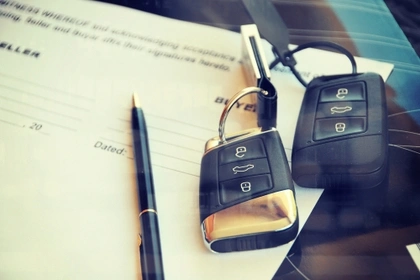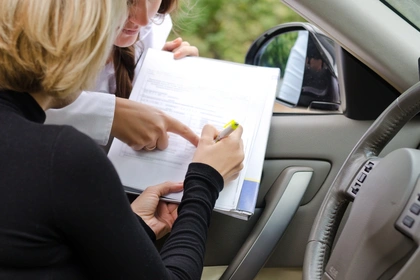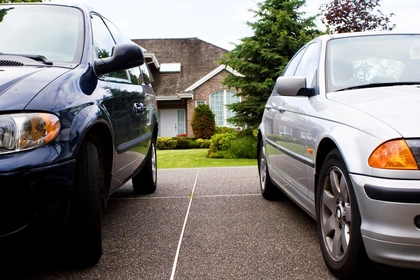Can I change my car before the end of my finance agreement?
Car finance agreements can be long-lasting; in fact, depending on the terms of your loan, you may commit to making fixed monthly repayments for between two and five years. A lot can happen in five years; you might lose your job, have a child, buy a dog, or realise that your car won’t last the full loan term in its current condition.
The good news is that it may be possible to change car before the end of your finance agreement. But it’s not quite as easy as just trading it in for a new one. Instead, you’ll need to settle your car finance first to become the vehicle’s legal owner. You’ll then be free to sell it, modify it, or trade it in as a part exchange.
Why can’t you transfer car finance to another car?
You can’t transfer car finance to another car because each agreement is tailored to a specific vehicle.
Any changes to the conditions that applied when you first signed the contract – no matter whether your financial circumstances, your driving habits, or your vehicle have changed – will affect your loan.
Hire purchase (HP) and personal contract purchase (PCP) loans are also based on the vehicle’s value. With HP, you’ll borrow the full purchase price minus any deposit, while with PCP, you’ll need to borrow the amount of value the lender predicts your car will lose during the loan term. Both figures are based on the vehicle you’re buying and won’t apply to any other car. Further terms and conditions may also apply when you agree a car loan, including the age of your vehicle, its mileage, and its condition.
How can I cancel a car finance agreement?
If you need to cancel a car finance agreement, whether it’s become unaffordable or because you want to upgrade your car, there are three main options available:
Settlement Figure
If you have an HP or PCP agreement, you can request a settlement figure from your finance provider at any time. This figure will be based on your outstanding monthly repayments (and the balloon payment with a PCP), minus any interest. You might also need to pay an administration fee or an early repayment fee. Pay the settlement figure and you can take ownership of the car. As its legal owner, you can then modify, sell, or part exchange it.
Voluntary Termination
When you’re struggling to keep up with your car finance repayments, you might not be able to afford the settlement figure and prefer to cut your losses and walk away.
Under UK law, you have the right to voluntary terminate your car finance contract as long as you’ve paid 50% of the total amount payable. This shouldn’t be confused with the car’s value; it’s 50% of your loan repayments, interest, and any fees. In a PCP agreement, you’ll only be eligible once you’ve paid 50% of the total amount payable, including the one-off balloon payment. You don’t necessarily have to wait until you hit this threshold – you can choose to pay the difference until you reach 50%.
If you’d like to exercise your right to voluntary termination, contact your finance company to let them know. If you’ve reached the required 50% threshold and haven’t damaged the car beyond standard wear and tear, you should be able to hand over the keys and walk away.
Voluntary surrender
Voluntary surrender is where you give your vehicle back to the lender who will sell it and put the proceeds toward your outstanding loan balance. If there is any debt remaining after this, you will be liable to pay it. Lenders see voluntary surrender as less favourable than voluntary termination, but more favourable than repossession. It will be noted on your credit report, and it could make it more difficult for you to get accepted for credit in the future.
What happens if I sell a car with outstanding finance?
When considering selling a car on finance, it’s important to remember that you won’t be its legal owner until your car finance agreement is settled. The only exception to this is if you have a personal loan, as you’ll be the car’s owner as soon as you’ve paid the seller. With both HP and PCP loans, the lender will remain the legal owner until you’ve finished making all your repayments.
It’s illegal to knowingly sell a car with outstanding finance without informing the buyer. As the borrower, you’re responsible for keeping up the repayments until the end of the loan term, even if you sell the car. If you fail to make these payments, the vehicle could be repossessed, no matter whether the keys are in somebody else’s possession.
Can I part exchange a car with outstanding finance?
Part exchanging a vehicle with outstanding finance works similarly to selling as you can’t trade in a car on finance without settling the loan first. However, depending on the terms and conditions of your agreement and the dealership you’re working with, the finance settlement could be part of the trade. In fact, the dealership might offer to pay the settlement figure on your behalf and then set up a new finance agreement for your new vehicle.
If your vehicle is worth more than your settlement figure, you’ll be in positive equity and can put the difference towards your new car. However, if it’s worth less than the settlement figure, you might need to make a cash contribution for the dealership to take it off your hands.
Part exchanging a car on finance can be quicker and easier than other options, as the dealership does some of the hard work for you, but it might not always offer the best possible deal.
Should I consider a refinancing my car?
If you’d like to keep your current car but would like to swap the finance, you might be eligible for a refinance loan. Refinancing allows you to take out a new loan to settle your existing finance and start a new deal. You might be able to secure a longer loan term with lower repayments or find a loan with a better interest rate if your credit score has improved.
Keep in mind that paying lower repayments over a longer time might not end up being cheaper in the long run due to the extra interest payable. However, if your financial circumstances have changed but you still love your car, you might be able to swap to a finance deal that fits your new situation through refinancing.
Will outstanding finance affect my car loan eligibility?
Car loan eligibility isn’t an exact science and there are several factors which can affect whether a lender approves your loan application. Each lender has different eligibility criteria – and it’s not all about your credit score.
If you have an existing car finance loan and would like to take out another, you may find it tough to qualify on grounds of affordability. Affordability is based on the amount of disposable income you have left after all your bills are paid, and if a new loan could negatively affect your finances, you may not be approved.
However, if you’re planning to settle your outstanding finance first and then apply for a new car loan, it could help with your eligibility. Assuming you’ve kept up with your monthly repayments throughout the loan term, you may have demonstrated that you’re a responsible borrower and a good candidate for a loan. Get a no-obligation quote to find out more.
Get Car Finance up to £100,000
- Check your eligibility without impacting your credit score
- No deposit needed
- Rates from 8.9%* APR
'Representative Example: Borrow £12,000 over 5 years with a £0 deposit. Representative 20.5% APR fixed rate. Monthly payment: £309.93. Option to purchase fee £10 payable. Total cost of credit: £6,605.80. Total amount repayable: £18,605.80.
We are a credit broker, not a lender. We partner with CarFinance 247 Limited, a credit broker (not a lender) who works with a wide panel of lenders.
Disclaimer: We make every effort to ensure content is correct when published. Information on this website doesn't constitute financial advice, and we aren't responsible for the content of any external sites.






